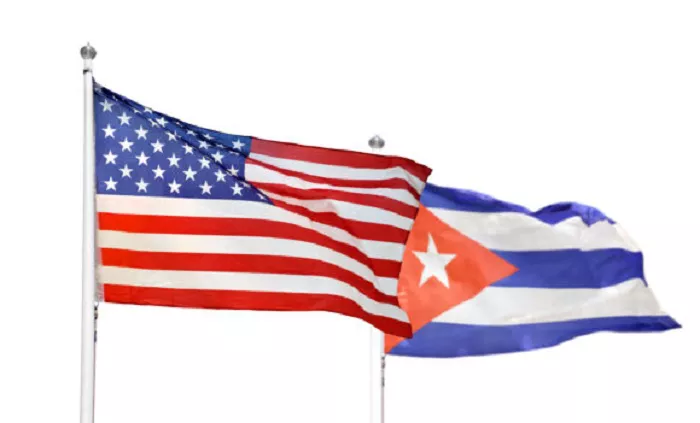MIAMI, FL — The recent arrest of a former Cuban intelligence officer in South Florida has reignited tensions within the Cuban-American community, revealing a growing divide over immigration policy and political loyalty.
Tomás Hernández, 71, was taken into custody by federal agents in March outside his Miami-area home. U.S. immigration officials accuse him of concealing decades-long ties to Cuba’s Communist Party and its foreign intelligence service when applying for permanent residency.
Hernández’s arrest is one of several high-profile deportation cases targeting former Cuban government officials now residing in the United States. These actions have been met with strong support from hardline Cuban exiles in South Florida, many of whom view the crackdown as long overdue.
“It’s a political gift to Cuban-American hardliners,” said Eduardo Gamarra, a Latin America expert at Florida International University. However, he noted the move has left others in the community unsettled. “Some in the community see it as a betrayal,” he added.
A Community Once Shielded
Historically, Cuban migrants have enjoyed preferential treatment in U.S. immigration policy, a legacy of Cold War efforts to undermine Fidel Castro’s regime. Unlike most other nationalities, Cubans were often granted refugee status and a path to residency soon after arrival.
But recent policy shifts under former President Donald Trump have disrupted this longstanding dynamic. In March, the Trump administration revoked humanitarian parole protections for roughly 300,000 Cubans, sparking a wave of detentions and deportation proceedings.
Among those affected is rapper Eliéxer Márquez, known as “El Funky,” who helped popularize the 2021 protest anthem “Patria y Vida” and once received public praise from former Florida Senator and current Secretary of State Marco Rubio. Márquez said he was recently ordered to leave the U.S. within 30 days, despite his vocal anti-communist stance.
Trump’s tough immigration rhetoric has generally spared Cuban migrants, focusing instead on Venezuelans and Haitians. This selective messaging helped him secure overwhelming support from Cuban-American voters in South Florida, with polling showing record-high approval before the last presidential election.
A Political Flashpoint
Democrats have sought to capitalize on the shifting immigration landscape. In April, advocacy groups erected billboards in Miami labeling Republican lawmakers, including Rubio and Reps. Mario Díaz-Balart, María Elvira Salazar, and Carlos Giménez, as “traitors” to the Cuban community for not shielding migrants from Trump’s policies.
Meanwhile, Rep. Giménez has taken a leading role in pressing for deportations of former Cuban officials. In a letter to Homeland Security Secretary Kristi Noem, he provided a list of 108 individuals alleged to be ex-agents or Communist Party loyalists living unlawfully in the U.S.
“It is imperative that the Department of Homeland Security enforce existing U.S. laws,” Giménez wrote. “These individuals pose a direct threat to our national security and the integrity of our immigration system.”
Tracking the “Cuban Repressors”
The list was compiled by Luis Dominguez, a Cuban exile and activist who has spent years exposing former officials linked to Havana’s security apparatus. In 2009, he made headlines by catfishing Fidel Castro’s son in an online scheme to obtain insider information.
Dominguez operates the website Represores Cubanos, which has identified more than 1,200 alleged Cuban state agents, including about 150 currently living in the U.S. His work is backed by the conservative Foundation for Human Rights in Cuba and has become a key resource for immigration authorities and anti-Castro advocates.
“These people condemned the American dream when they were in power,” Dominguez said. “Now that they’re here, they embrace it. It’s the double life of every communist regime.”
Complicated Enforcement
Despite growing political will, deporting Cubans en masse remains a logistical challenge. U.S. immigration law prohibits members of Communist parties from receiving green cards, and lying on residency applications can lead to removal or prosecution. Still, enforcement capacity is limited.
Currently, the U.S. sends just one deportation flight per month to Cuba, each with 60 seats. At that pace, it would take centuries to repatriate the estimated 500,000 Cubans who arrived during the Biden administration without legal protection, according to watchdog group Witness at the Border.
Unease in Little Havana
At the iconic Versailles Restaurant in Miami’s Little Havana, a stronghold of anti-Castro sentiment, many regulars continue to support Trump’s immigration agenda. One patron, 83-year-old Rafael Nieto, proudly sported a Trump 2024 hat and pin.
But beneath the surface, anxiety is growing.
“People are trembling,” said Tony Freitas, who arrived in the U.S. during the 1980 Mariel boatlift. “For any little thing, you could be deported.”
As the community grapples with shifting policies and political loyalties, the line between ally and target continues to blur.
Related topics:
- Immigration Department to Increase Passport and Visa Fees Starting September
- New Zealand Immigration Minister Faces Backlash Over Comments on Emails from Indian Nationals
- Trump’s Immigration Crackdown Strains Businesses with Hiring Challenges


